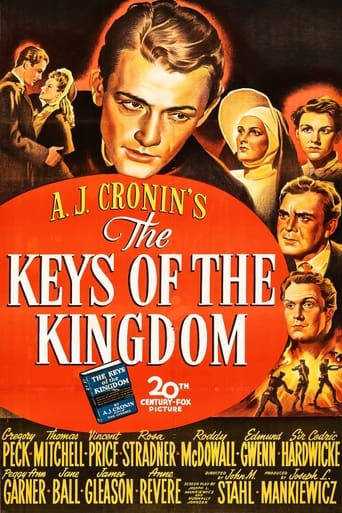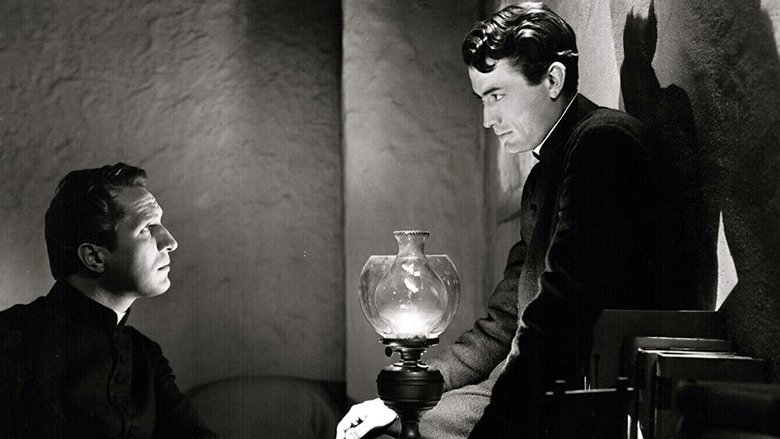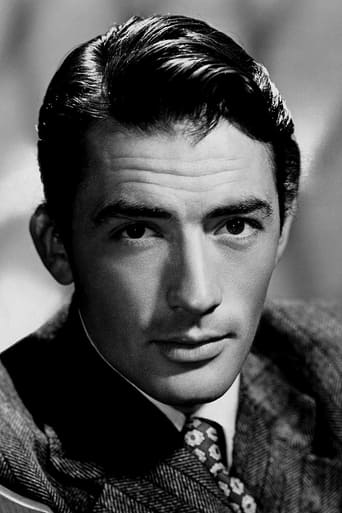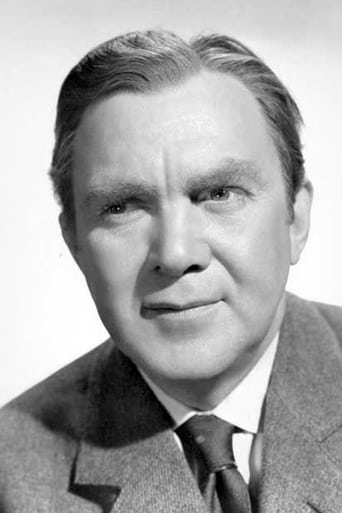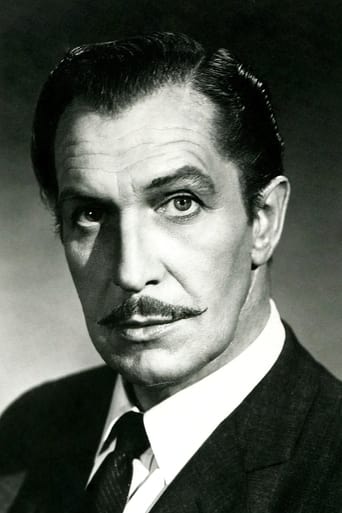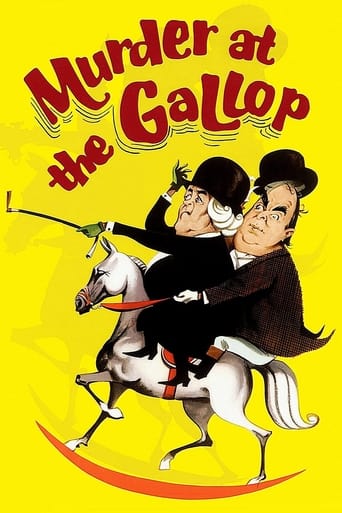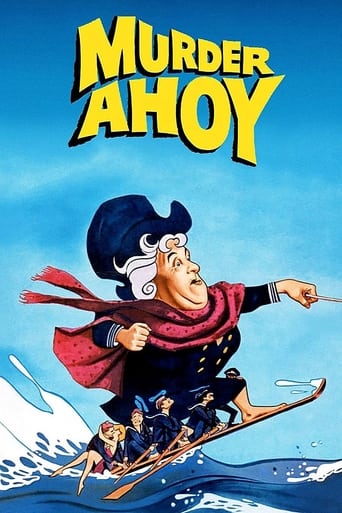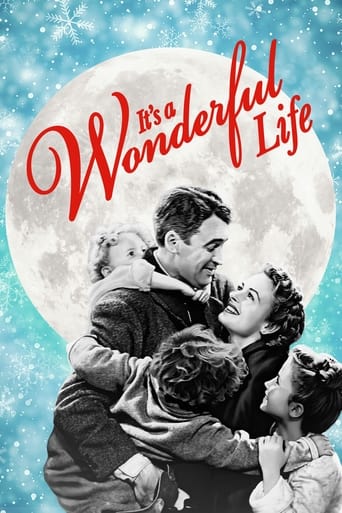The Keys of the Kingdom (1944)
A young priest, Father Chisholm is sent to China to establish a Catholic parish among the non-Christian Chinese. While his boyhood friend, also a priest, flourishes in his calling as a priest in a more Christian area of the world, Father Chisholm struggles. He encounters hostility, isolation, disease, poverty and a variety of set backs which humble him, but make him more determined than ever to succeed.
Watch Trailer
Cast


Similar titles
Reviews
Great Film overall
The film makes a home in your brain and the only cure is to see it again.
A lot of perfectly good film show their cards early, establish a unique premise and let the audience explore a topic at a leisurely pace, without much in terms of surprise. this film is not one of those films.
This is one of the few movies I've ever seen where the whole audience broke into spontaneous, loud applause a third of the way in.
Producer: Joseph L. Mankiewicz. Copyright 14 December 1944 by 20th Century-Fox Film Corp. New York release at the Rivoli: 29 December 1944. U.S. release: January 1945. U.K. release: 23 April 1945. Australian release: 17 January 1946. Sydney release at the Century, 11 January 1946. U.S. length: 12,375 feet. 137½ minutes. Australian length: 12,408 feet. 138 minutes.SYNOPSIS: Catholic priest ministers in China in the early years of the 19th century.NOTES: Mankiewicz's first film assignment for Fox (after leaving MGM). The script had already been prepared by Nunnally Johnson, but Mankiewicz considerably changed and re-wrote it. Gregory Peck was nominated for an Academy Award for Best Actor (losing to Ray Milland in The Lost Weekend); Arthur Miller was nominated for Best Cinematography, but the award went to Harry Stradling for The Picture of Dorian Gray; Best Art Direction and Sets were also nominated but lost to A. Roland Fields for Blood on the Sun; while Alfred Newman was passed over for the award for Best Scoring of a Dramatic or Comedy Picture in favor of Spellbound composed by Miklos Rosza.COMMENT: 19th century Hollywood rarely had the guts to stand up to the vested interests of organized religion - particularly that represented by the Roman Catholic Church. The Keys of the Kingdom is an excellent case in point. Doctor Cronin's novel is an outspoken, powerfully-crafted polemic against organized religion in general, the Catholic brand in particular - but none of Cronin's points, not a single one of his arguments or effects, is allowed to find even a shadow of an expression in this screen version. In typical Hollywood fashion, not to be defeated by this considerably watered-down, milksop version of the book, Fox's publicity department hailed the novel as "one of the most excitingly discussed books of our times" - thereby implying that the exact same qualities were to be found on the screen. Not so. What we actually have instead is the usual Hollywood impression of sanctity. The Hollywood saint is a humanitarian, first, last and foremost. He is always humble, always soft-spoken and never pushy - except when his humanitarian principles are threatened. With this proviso, he always respects and kowtows to Authority - whether religious or civil. The Hollywood clergyman is also remarkably ignorant of the dogma and doctrines of his particular church. This enables him to mix ecumenically with both adherents and ministers of different faiths - or even no faith at all (atheists) - without the slightest qualms of conscience. He is in fact a simpleton. He doesn't deny, he is simply completely unaware of the intellectualism of all religions. He has such a vague - even nonexistent - understanding of God that he is sustained through all adversities solely by a peculiar inward faith in the Rightness of all his own actions. Under the guise of humility, he is actually an ignorant, obstinate egotist who believes implicitly that his own amorphous faith in a God he neither understands nor appreciates, will either eventually right all wrongs or transcend all adverse conditions.In fact, he shows such little commitment to those precepts that are peculiar to his particular religion, it is extremely doubtful that he even knows them. As a Catholic, he will light candles regularly, but he will never speak of Indulgences or Transubstantiation or Limbo and Original Sin. If he is aware of these doctrines, he keeps them a secret. His aim is to avoid religious controversy at all costs. For this reason, he will rarely quote from the New Testament, preferring instead a Psalm or some other non-contentious verse from the Old.Such is the Hollywood priest. Within these limits, The Keys of the Kingdom is undoubtedly one of the more compelling films of a very blighted group. Pitched on a note of low intensity - and all the more effective for that - it tells of a missionary in China: his work, his struggle against apathy, his determination to live up to an ideal.Although it is often stylishly (and occasionally even powerfully) directed by John Stahl, Gregory Peck's performance in the pivotal and central role is no more than adequate at best. This was only his second film. Why he was cast in such a plum and difficult role - an untried and inexperienced actor whose debut in RKO's Days of Glory the year before was inauspicious to say the least - is another Hollywood mystery. Fortunately, he was surrounded by a fine supporting cast including Rosa Stradner (Mankiewicz's wife), playing the mother superior of the nuns at the mission, and Vincent Price, slightly out of character as the local bishop.The film is produced in Fox's usual grand epic style, with marvelous sets, beautiful camerawork and lighting - lavish production values all around.Viewed as a Hollywood venture into religion, The Keys of the Kingdom is more entertaining than most (e.g. Joan of Arc, Miracle of the Bells, The Bells of St. Mary's, Come to the Stable), less offensive than many (Jeffrey Hunter's The King of Kings; Change of Habit; A Man For All Seasons).
Over many years I have watched this movie and never tire of it. Gregory Peck is excellent as Fr.Chisolm.The film gives great insight to the Chinese culture and the humbleness of a Catholic Priest. Overall, if this movie is viewed for enjoyment purposes rather than trying to dissect it,is extremely entertaining and a great story. And as I like movies with the Chinese flavor I find it one of the best movies I have ever seen. I introduced this movie to my wife many years ago and it immediately became one of her favorite all time movies. Kudos to the actors and I wish film making would go back to these type movies rather than some of the trash that is made today. Watch it you will enjoy it immensely!!!!!!
This is pretty close to being a top-notch film, and all the more remarkable because it was only Gregory Peck's second appearance on celluloid! The cast here is very strong. Gregory Peck -- even as a young actor (he was 28 here) is brilliant as Father Chisholm; I would say this was close to a flawless performance, and he even aged well through the film. Thomas Mitchell was already in his 50s here, which really made him too old for the part, but he was one of those unique character actors who could almost do no wrong; still interesting. It's nice to remember that Vincent Price was a fairly respected character actor, although his role here as a senior Catholic prelate is far from his best. Rose Stradner, with whom I was not familiar, was very good as the Reverend Mother who begins as a harsh character, but evolves slowly into a more mellow partner in running the mission. Edmund Gwenn is as wonderful as ever as a senior prelate. Sir Cedric Hardwicke does fine, but his role as a prelate is minor...really one as the story teller. Probably the most interesting secondary role in the film is that by James Gleason; it's so different from his more typical roles...here he is a Methodist minister...very interesting, though he doesn't get a lot of screen time. Benson Fong is delightful as Joseph, a Chinese commoner with deep faith. Leonard Strong, as the wealthy Mr. Chia, is also interesting, although he was an Eurasian-American actor.To enjoy this film you have to put behind all the more recent degrading news in the Catholic Church today, and go back to more simple times. This is the story of a deep faith of a priest and his long adventures and many challenges in China. From the novel by A. J. Cronin, I couldn't find much to criticize in the story. Idealistic, certainly, but in general fairly believable. Okay, maybe the segment when Peck destroys a communist gun placement...but, okay, at least that part was unique. In some ways, this film reminded me a little of Humphrey Bogart in "The Left Hand Of God", although here Peck is the absolute opposite of everything Bogart was. But, some interesting comparisons.Highly recommended!
An earnestness which is not commonly seen today is the hallmark of many of the greatest films of the golden age of cinema. The Keys Of The Kingdom is a humbling expression of stirring earnestness. Father Chisholm is not shown as perfect, but the one constant is his humility and devotion to his calling. This theme has never been expressed more wondrously.This earnestness is also seen in the figures who intersect Father Chisholm's life: Willie, Angus (if you have to look closely at times to see it), the delightful Father McNabb, Reverend Doctor Fiske, Joseph, Mr. Chia, the wonderful Reverend Mother, and even in the end, the most triumphant and stirring realization of all, the at first dubious Monsignor. These parts are all played by fine actors doing some of their best work.The synthesis of wondrous story and inspired acting is ageless, and results in an experience much beloved by just about every viewer.

